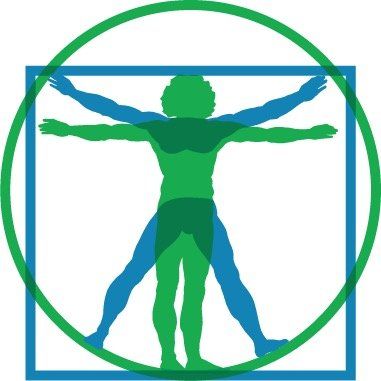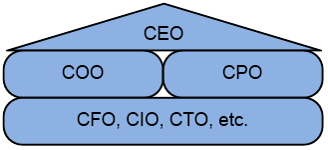Storytelling
Daniël Jolink • September 3, 2021
Rock hard soft skills: Storytelling
The theme of the Project Management in Healthcare conference on May 18, 2021 was "Rock hard soft skills". Project management in healthcare requires hard-developed soft skills. In the run-up to the conference, we therefore considered soft skills from the perspective of project management in healthcare in a series of blogs. In this blog we cover: Storytelling.
Storytelling is often associated with leadership, because leaders need to be able to sketch the dot on the horizon with a story. To lay out a future picture that the employees believe in, and want to actively participate in in order to achieve that vision of the future.
Nowadays storytelling is also mentioned as part of agile working, in which 'user stories' must make clear what the wishes and needs of the users are, in such a way that the developers understand the essence of what needs to be developed, and they can start quickly.
But storytelling should also be in the project manager's toolbox, albeit in a slightly different way. In order to be able to manage a project team while developing an innovative (IT) solution, the project manager must first have a clear picture of where it should go. How the requirements, wishes and expectations of the users can be translated into an application or IT system that meets those expectations. Often at the beginning it is still unclear where it will end, especially when working with agile/Scrum in sprints. It is fine to divide the workload into bite-sized chunks, in sprints or in subprojects, but the final picture must be clear at all times, at least for the project manager.
This means that the project manager must have "a good story"; he/she must be able to outline what the final product will look like. And whether that happens in a charcoal sketch, in an animation, or in a PowerPoint presentation, that doesn't matter, but the story has to be good. Clear, credible and consistent, but also feasible and achievable.
This story arises, of course, in consultation with the client and the end users. The story arises during the preliminary phase, when a picture of the intended goal is sketched while brainstorming. That image, that must be embraced and communicated by the project manager.
But as in any story, there are heros. And that is the second function of storytelling for project managers: in order to motivate and enthuse the team, the project manager must paint a picture of the involvement of various team members in the creation of the final picture. What's everyone's role? How will we work together? What can we achieve only with each other?
Storytelling therefore paints a picture of what is not yet there, but is intended on the one hand, but also of the team that will ensure the realization of that final picture.
The question can now be asked " Is storytelling a skill of particular interest to project managers?" My answer to this is "yes, especially in the context of agile/Scrum working, in which a product gradually arises, even if that is still vague at the beginning. Thanks to storytelling, a joint image is created by the project manager, to which the team members can hold on to. The path that leads to the dot on the horizon becomes clear to the project team members.
Next, the question arises : "Is storytelling a skill of particular importance for project managers in healthcare?" My answer to this is 'yes', because in order to convince the staff in a hospital that the (IT) project, which is actually a change process, in which working methods need to be adapted and protocols changed, it is very important that a picture is sketched that is credible, that is realistic and feasible, and that does justice to the provision of good care, as the department is used to doing. Storytelling allows the project manager, supported by the head of the department, to paint a picture of "care of the future in the hospital of the future". And to achieve this, the project manager in healthcare must have excellent (storytelling) skills, combined with knowledge of the healthcare processes and affinity with healthcare."
To reinforce that image of storytelling a little more, I conclude with the quote by Antoine de Saint-Exupéry (1900-1944):
"If you want to build a ship, you should not instruct workers to collect wood, you should not divide the work and give orders. Instead, teach people to yearn for the endless sea first."
If that isn’t storytelling!
© 2021, Daniël Jolink , Manager Portfolio, Projects and Processes at Erasmus MC. He writes his contributions to the Project Management Foundation in Healthcare in a personal capacity.

The theme of the Project Management in Healthcare conference on May 18, 2021 is "Rock hard soft skills". Project management in healthcare requires extremely hard developed soft skills. In the run-up to the conference, we will therefore consider soft skills from the perspective of project management in healthcare in this series of blogs. In this issue we will discuss: cultural sensitivity. One of the most complex "soft skills" of project managers in healthcare is cultural sensitivity. The culture of a healthcare organization is in many areas comparable to that of a large (corporate) organization, but on a number of points quite the opposite; it is rather comparable to a medium-sized city, in which the different departments are independent shops and factories, each with their own doctors, nurses & managers and sometimes even professors, researchers and students. Each with their own specialty, but all with the same common goal, which is to combat diseases, care for clients and promote health. These departments all have their own dynamics and culture, but work for (and with) the same patients & clients. In order to guarantee cooperation within a care organization and to enable the exchange of information within and between care organizations, the same data standards are used as much as possible and preferably the same EPD or ECD. Many projects are aimed at linking the EPD / ECD to the specific modalities of the departments and to improve information gathering & information exchange. To be able to share and exchange information about patients / clients between different departments. To make patient / client information visible and comparable for multidisciplinary consultations. This means that as a project manager in healthcare, you will work in many different departments, and there for you have to deal with different cultures and you have to be able to cooperate with everyone. This requires project managers in healthcare, more than project managers in other sectors, to have a well-developed cultural sensitivity. To be successful as a project manager in healthcare, you must be able to adapt to the culture of the department for which you are realizing the project. Having a feeling for the relationships, an eye for the specific characteristics, listening to the nuances of the department. Connecting with the current culture, joining the ways-of-working and thinking along with the requirements and wishes of the project owner. But in the meantime you have to keep the objective and the intended result in mind. Because the project manager has been appointed precisely to achieve the goal, with as much support and involvement as possible from the department for which the project is intended. Cultural sensitivity helps the project manager in healthcare to be successful. But cultural sensitivity does not mean “to sway in the breeze” or “to lean too far in the sympathies”. Because for departments to optimally cooperate with each other and to exchange patient / client information adequately, certain standards and clear agreements are required. And implementing these in the various departments sometimes means gaining support for unpopular choices, which may go against the ingrained working methods of healthcare professionals. They may also require different ways-of-working; maybe protocols need to be adapted. And that is also part of the project manager's responsibilities in healthcare. In conclusion, it can be said that cultural sensitivity definitely belongs in the toolbox of the project manager in healthcare. Because it is an important tool, along with all those other skills, to be successful in the complex environment that healthcare organizations are. © 2020, Daniël Jolink, Manager Portfolio, Project & Program Management at the LUMC. He writes his contributions in the context of the Project Management in Healthcare Foundation in a personal capacity.

Whether you are starting a new project or you are at the beginning of a reorganization, in any change you will have to deal with various stakeholders. Perhaps you are already actively involved with stakeholders, and perhaps you have drawn up a list of the most important stakeholders and you are informing these people about the progress of the project on a regular basis. Making a well-designed interactive stakeholder approach is often seen as complicated, it takes time and money and is often limited to drawing up a long list of stakeholders. Especially in healthcare, your stakeholder approach is something that requires continuous attention. Why is that? In the first place, healthcare entrepreneurs and organizations are social enterprises. They are active in a public playing field and contribute to our public health care interests. They therefore have a social "duty" to involve stakeholders in decision-making. Secondly, stakeholders are nowhere as diverse as in healthcare. They include clients, employees, health insurers, municipalities, IGZ, patient associations, works councils, industry associations, politicians, local residents, partners (suppliers and referrers) and housing companies. The (proposed) change can yield something for them, but also pose a threat. It is important to know who and which parties are the key stakeholders for your healthcare organization. In third place, good management and supervision are important conditions for excellent care. The Health Care Governance Code (2017) states that "the care organization creates preconditions and guarantees adequate influence of stakeholders". Internal and external stakeholders must therefore be able to influence care, services and direction of care organizations. Therefore it is important to know who your most important stakeholders are, and how you involve these stakeholders with your project, in a sustainable way. The often prevailing belief that actively involving stakeholders (listening to, integrating useful input into your project) requires far too much time and resources and is therefore a costly matter, is not surprising. If you are under the impression that there is a whole list of stakeholders that you have to manage, it can be overwhelming. The difficulty is in identifying and finding the right way to connect with your key stakeholders. So how to start a sustainable, practical and feasible stakeholder approach? First of all, you focus on the most important stakeholders, because not all stakeholders are equally relevant for every healthcare organization. The project team will initially map this out. Brainstorm with each other and ask yourself the following questions: To what extent can the stakeholder impose his will, for example on the basis of legal powers, or by exerting influence on other stakeholders. Consider, for example, IGZ which can influence and / or stop processes within an institution. What interest do stakeholders have in the project; do they benefit from or are they hindered by the change? Are there perhaps opportunities to offer new services? Stakeholder management can also offer new opportunities for your organization and contribute to innovation. What is the public opinion about your organization, your project or the intended change? Which social issues does the organization face? Now it is time to interact with your most important stakeholders; how do they view the project or change? Make sure that members of your project team are responsible for specific stakeholders, ask for feedback, know what is going on and inform. Also be specific about who does what and when, and follow up. Then map out which requirements and expectations the most important stakeholders have and how you as a healthcare organization can, want and will respond to them. An active stakeholder approach "forces" the project team to thoroughly delve into the relevant stakeholders, which contributes to a good result of the project and also provides new insights for your project but also for the rest of the organization. © 2020, Daniëlle van Uden, stakeholder specialist

The theme of the Project Management in Healthcare conference on May 18, 2021 is "Rock hard soft skills". Project management in healthcare requires extremely hard developed soft skills. In the run-up to the conference, we will therefore consider soft skills from the perspective of project management in healthcare in this series of blogs. In this issue we will discuss: perseverance. Perseverance stands for a person's ability to achieve a specific goal, despite the setbacks that arise. As total 'project management nerds' we therefore occasionally participate in obstacle races (also known as "mud runs") with the Project Management in Healthcare Foundation. They are a wonderful, living metaphor for project management. After all, you also encounter obstacles on your way to the finish. In addition, concepts such as " throwing mud " and "muddling through" are also not uncommon in the project management context. My ultimate thought is, however: when we can learn to overcome obstacles by practicing sports, then we will certainly benefit from it in our workplace. Perseverance, in the sense of persistence is rewarded, tenacity, determination, discipline, etc., is a skill for which one obviously has more aptitude than the other. Yet it most certainly can be cultivated. In the book “Dealing with adversity, practical tips for overcoming obstacles”, Paul G. Stoltz offers a questionnaire to measure your current AQ, antagonism quotient. This quotient determines to what extent you know how to persevere when you encounter setbacks. If you know what your AQ is, you can start to use it. Stoltz also provides various useful tools. More recent and scientifically substantiated is Angela Duckworth's work on the grit factor. Duckworth formulated the hypothesis that real success mainly comes from a special mix of complete surrender and the determination to work on long-term goals: grit. According to Duckworth, six core values determine a person's grit factor: hope, effort, precision, passion, rituals and priorities. “Enthusiasm is common. Endurance is rare.” A Dutch specialist in perseverance is Sander Aarts. Through his book “Niet te Breken” (red. Unbreakable) you will become mentally unbeatable by taking note of the experiences and lessons of the Special Forces. This book inspires and reads like an exciting boys' book (also for tough girls!). If you're looking for a special team outing, check out his Unbreakable Academy. Incidentally, there is no shortage of (former) soldiers, who inspire in the field of perseverance. Jocko Willink and David Goggins are very popular at the moment. I also found the story of Ross Edgley very special, who was the first person to recently swim around Great Britain. Perseverance could also be a nice theme of a Hell Week, which has a somewhat military footing but above all, practically "sandblasts" your life. Is perseverance a skill of particular importance to project managers? Yes, because projects do not come about without a struggle. There is always resistance to change, even if the change is an improvement. Then you must persevere. Not against your better judgment, of course, but sometimes against all odds and by bypassing yourself. At the very end of projects it is a matter of perseverance until you’re done. The last mile is the hardest and not easily walked. That requires perseverance, if only to motivate others to also persevere. Is perseverance a skill of particular importance to healthcare project managers? No, because always and everywhere more projects will be started than continued. But in healthcare, resistance to change can take on enormous proportions, for example because of conservatism, and persistence can be particularly problematic in an environment that does not excel in holding each other accountable. © 2020, John van Rouwendaal




